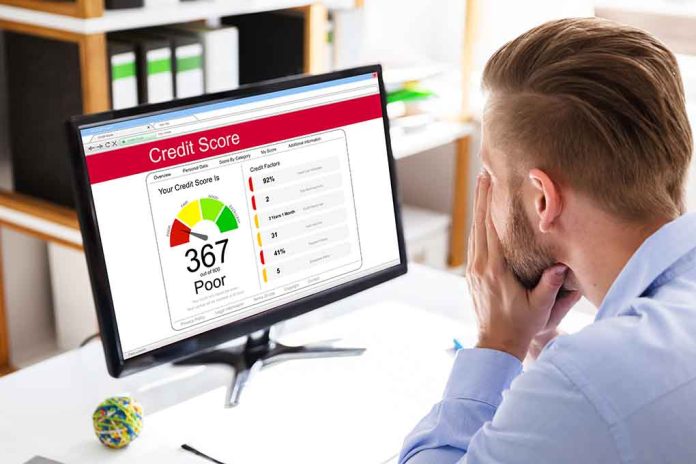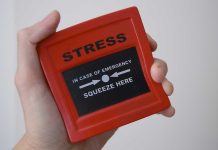
Credit Score On The Rocks? Here’s Some Sneaky Reasons Why
(DailyDig.com) – It’s very alarming to realize that there’s been a sudden drop in your credit score. After all, your credit score affects your ability to own or rent a home, get a car loan, and even get utilities without a large deposit. If your score is low enough, you might not even be able to get a bank account. If you’re applying for a mortgage soon, a dip in your credit score could mean a higher interest loan rate — so it’s up to you to remain vigilant about your credit score to ensure there are no surprises.
About Credit Score Drops
Though Credit Karma is the most popular, there are many legitimate credit score monitoring services. Note that sites like Credit Karma are useful and provide excellent information about recovering from debt, but they also make money on affiliate sales — for example, getting you to sign up for a credit card from an advertiser. Keep this in mind when sites like that encourage you to consolidate your debt with a loan, re-finance your car, or get a new credit card. Depending on your situation, some of those actions could hurt your score.
Find the Culprit(s) and Repair Damage
To get to the source of your credit score drop, it’s vital to find the culprits. There could be more than one! Here’s what to check for:
- Suspicious activity and fraud: Commonly, someone might use your personal information to apply for credit cards, loans, and more — leaving a drop in your score when they inevitably don’t pay. This could be a criminal who received your information on the dark web following a data breach, or it could be an unhealthy family member. If this happens, you need to report the fraudulent activity immediately and consider freezing your credit to avoid further problems. (It’s also a good idea to notify your bank, even if the fraud pertained to a different bank or a card not associated with your bank, so you can ensure your money remains secure and available to you.) Credit reporting websites like Experian have step-by-step guides for reporting fraud.
- Purchases you intended to make: Maybe you made the decision to put that new piece of furniture on a credit card or apply for an auto loan that you took. This is not unusual or bad — but if your credit card balance goes up (even temporarily) or if you’ve applied for a loan (even one that’s commonly accepted, such as a car loan), it will negatively impact your score.
- Other credit inquiries: Like that auto loan, any credit inquiries can damage your score. These are “minor dings” and usually pretty temporary.
- Credit age: It feels great to finally qualify for a decent credit card — but when you do, you’ve just lowered your credit age. Unfortunately, credit age is a factor in the determination of your score.
- Loan payoffs: Have you ever come into a sum of money and paid off a large debt? Feels awesome, right? It is! However, the credit beaureaus don’t see it that way — they’d rather see you pay off your loans over time.
- Collections accounts: These are the biggest, baddest culprits that frequently appear. Collections accounts occur when you owe money, and they really tank your score. Fix these by calling your creditors and working out a payment plan. Once you’re paid up, your score may recover quickly.
- Eviction or default: If you’ve been evicted or defaulted on a loan, such as an auto loan or mortgage, it can stay on your credit report for at least seven years. There’s not much you can do about these bad marks but continually improve. Credit scores don’t consider tough situations like recessions, job losses, or housing collapses.
Moving forward, continue to monitor your credit score. Since big purchases can negatively impact your score, you’ll need to do some life planning, knowing that your score will take a tumble after a big event. If you need financial counseling, many employee assistance programs (EAPs) and local social services can help — reach out and get an improved plan.
Copyright 2022, DailyDig.com













